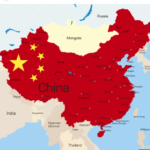Beijing, the Chinese Communist Party, the Chinese government and Chinese patriots are certainly keeping a close eye on what’s going on in Russia, what’s been going on in Russia for the past 30 years and what preceded these events while the Soviet Union still existed from Sakhalin Island to Belarus, from Leningrad to Almaty. What lessons do they draw? Here they are:
① Never, ever and under no circumstances, believe what Western politicians promise. Western politicians promised the leaders of the Soviet Union that they would not accept countries bordering on the Soviet Union into NATO, and they have not kept that commitment.
② Never, ever and under no circumstances should you trust Western politicians to treat you as an equal, as a partner. Yes, these will be the promises, yes, this is how Western politicians will pretend to be during the flirtation period, during the seduction period of the country in question (in this case China), but the moment the country in question (China) is seduced, Western policy will change: the partner will gradually turn out to be the dominator.
③ Never, ever and under no circumstances should economic reforms proposed by the IMF or WB or similar institutions be adopted. Such reforms are calculated to turn the economy of the country receiving aid upside down and to subordinate that country to the global financiers.
④ Never, ever and under no circumstances should one be dragged into international projects because sooner or later they will serve to subordinate a member country to supranational organizations that serve the United States, the European Union or the financial international circles, but certainly not the member country.
⑤ Never, ever and under no circumstances should one rely on the international division of labor, that is, on the arrangement that some produce this and others produce that, or on the scheme that Russia is to be the supplier of raw materials, China – the global factory and the West – the brain of the world, the world’s manager. The state should be self-sufficient, at least when it comes to the most important branches of the economy or else the sanctions imposed by the West might ruin the country thus punished. Continue reading



















